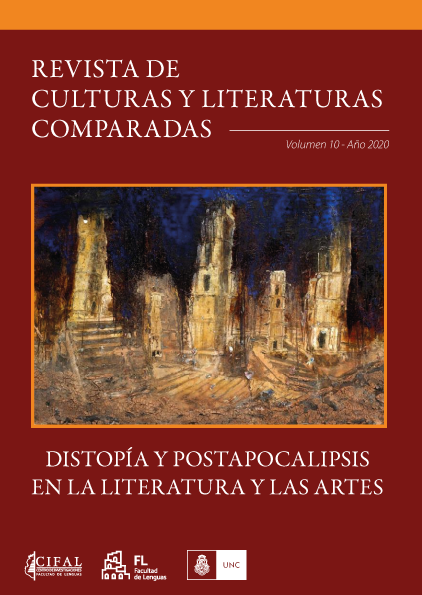New Subjectivities, Continuities and Fractures in Dystopian Trends in the 21st Century: Black Mirror, a Dark Mirror of Our Here and Now
Keywords:
dystopia, new subjetivities of the XXI century, Black MirrorAbstract
Dystopian works have a long-standing tradition in our culture. Their gloomy universes are persistent scenarios for the nightmarish stories they tell, where unhappy protagonists are caught in extremely suffocating power systems. Such fictional worlds stand as fundamental domains to explore the greatest social and political changes experienced by men. Starting with the industrial transformation and its impact on the factory system, going through the major technological changes of the XXI century, every historical period has dreamt its own utopian and dystopian dreams. At the turn of the millennium, Revolution 2.0 has marked a new era, having a direct impact on the way we see ourselves, other people and the world. The British series Black Mirror problematizes the new exteriorized subjectivities of human beings, which are influenced by the use of digital devices (Sibilia 1999, 2008, 2012), and turns the reflection of the relationship human-technology into a dark mirror where the world around us reflects; in this time and place.
Downloads
References
Corpus
Arkangel. Black Mirror, temporada 4, episodio 2, diciembre 29, 2017. Netflix.
Be Right Back. Black Mirror, temporada 2, episodio 1, febrero 11, 2013. Netflix.
Fifteen Million Merits. Black Mirror, temporada 2, episodio 1, diciembre 11, 2011. Netflix.
Nosedive. Black Mirror, temporada 3, episodio 1, octubre 21, 2016. Netflix.
Smithereens. Black Mirror, temporada 5, episodio 2, junio 5, 2019. Netflix.
Bibliografía citada
Claeys, Gregory. The Cambridge Companion to Utopian Literature. United Kingdom: Cambridge University Press, 2010.
Gilles Deleuze. Posdata sobre las sociedades de control. Christian Ferrer, Comp. El lenguaje literario. Montevideo: Nordan,1991.
Jameson, Fredric. Utopia as Method or the Uses of the Future. Michael D. Gordinet al., Eds. Utopia/dystopia: Conditions of Historical Possibility. Princeton: Princeton University Press, 2010.
---. Archaeologies of the Future: The Desire Called Utopia and Other Science Fictions. London: Verso, 2005.
Sibilia, Paula. El hombre postorgánico. Cuerpo, subjetividad y tecnologías digitales. Buenos Aires: Fondo de Cultura Económica, 1999.
---.¿Redes o paredes? La escuela en tiempos de dispersión. Buenos Aires: Tinta Fresca, 2012.
---. La intimidad como espectáculo. Buenos Aires: Fondo de Cultura Económica, 2008.
Downloads
Published
Issue
Section
License

This work is licensed under a Creative Commons Attribution-NonCommercial-NoDerivatives 4.0 International License.
Aquellos/as autores/as que tengan publicaciones con esta revista, aceptan los términos siguientes:
a) Los/as autores/as conservarán sus derechos de autor y garantizarán a la revista el derecho de primera publicación de su obra, el cual estará simultáneamente sujeto a la Licencia de reconocimiento de Creative Commons.
b) La cesión de derechos no exclusivos implica que la publicación de los artículos en la presente revista no quita la posibilidad o el derecho al autor/a de publicar su obra de manera posterior en otras revistas u órganos editoriales y la autorización por parte de los/as autores/as para que el trabajo sea depositado en los repositorios institucionales, tales como el Portal de Revistas de la Universidad Nacional de Córdoba.



